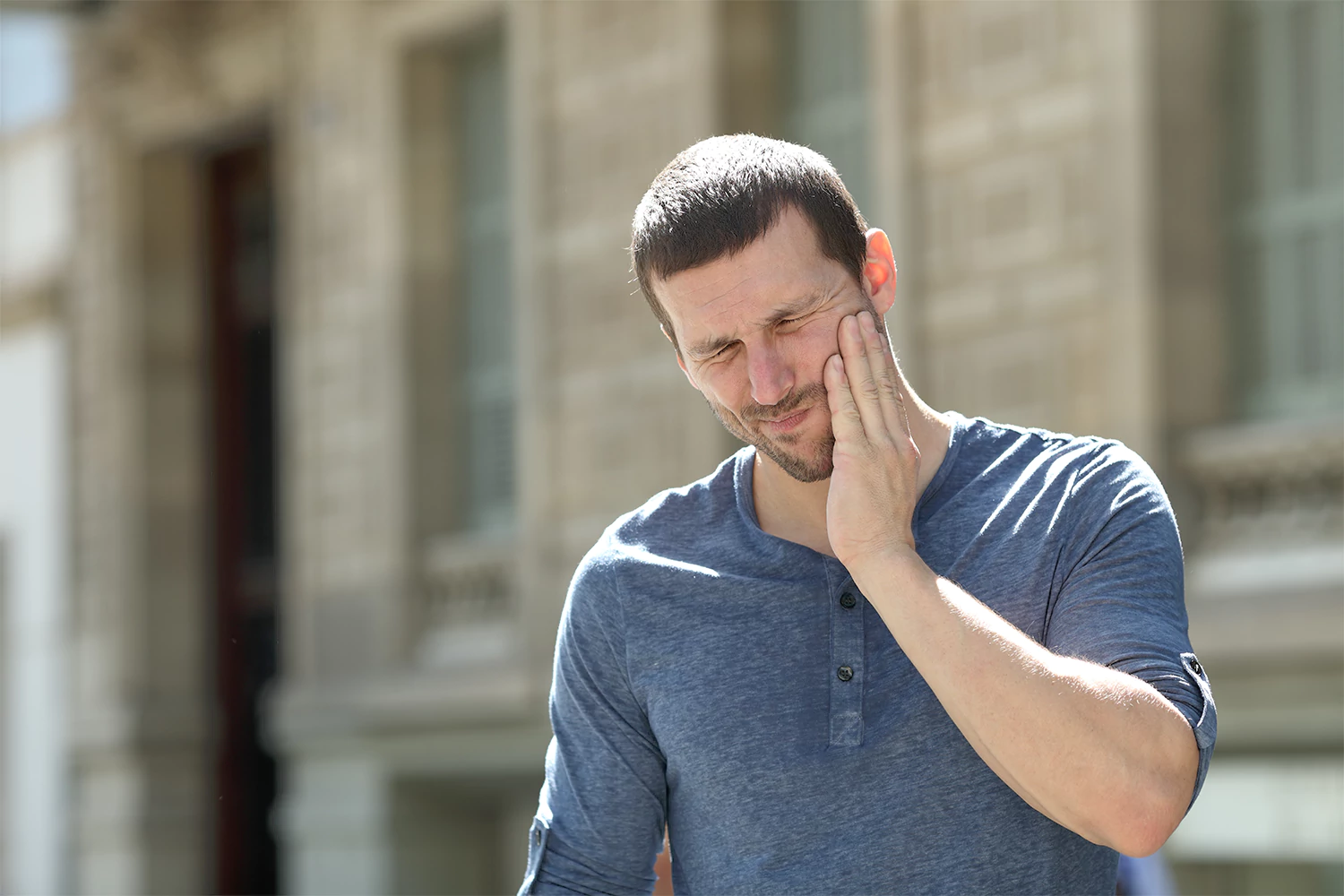TMJ Disorder Treatment in Werribee
At Wyndham Dental, we provide expert care for TMJ disorder, helping patients alleviate discomfort and improve jaw function. Our skilled and experienced Werribee dentists provide specialised solutions for any jaw pain, clicking sounds, or chewing issues you may be having.
What is TMJ Disorder?
The temporomandibular joints (TMJ) are the two joints located at the back of your lower jaw (in front of each ear), connecting it to your upper jaw and skull. These are some of the most frequently used joints in your body. When these joints fail to function properly, a condition known as Temporomandibular Joint Disorder (TMJ Disorder or TMD) occurs.
Do you feel pain or soreness along your jaw when you eat, talk or yawn? Perhaps you experience limited movement in your jaws, or does it ever feel like they are locking up? If so, you might be suffering from TMJ dysfunction. At Wyndham Dental, we’re here to help you both understand and manage this, so you can get back to eating and speaking normally again.

Suffer from jaw pain? We can help you manage this!
Common TMJ Disorder Symptoms
While there are other dental conditions or health problems that may display similar symptoms, here are some of the most common signs of TMJ Disorder.
- Pain or soreness in jaw muscles (especially when eating or yawning)
- Pain that radiates across your face to your head, ears and neck
- Clicking or popping sounds when you move your jaw
- Headaches, migraines and earaches
- Pressure behind your eyes
- A change or slight misalignment across your bite
- Swelling on the sides of your face
The best way to find out if TMD is behind your symptoms is to schedule an appointment with our skilled dentists in Werribee.
Causes of TMJ: Is TMJ a dental or medical issue?
TMJ disorder could be caused by either dental or medical issues! Some of the most common factors are:
- Teeth grinding (also known as Bruxism)
- Misaligned bite
- Damaged/worn-down teeth
- Dental trauma
- Health conditions such as gout, rheumatoid arthritis, etc.
Since the cause of TMJ might not be immediately obvious, our dentist will carry out a thorough evaluation at your appointment to identify and address the source of the issue.
How can Bruxism cause TMJ Disorder?
TMJ Disorder and Bruxism are quite often linked together, so it’s not uncommon for individuals with TMJ disorder to also suffer from Bruxism. Bruxism is a chronic state of teeth grinding that occurs regardless of whether you’re conscious or unconscious.
This constant grinding can occur due to stress, deep concentration, an abnormal bite or a sleep disorder like sleep apnea. If you suffer from Bruxism, you’re likely to wake up with a sore jaw or headaches & facial aches. The constant pressure can even lead to premature erosion of your teeth and affect your jaw joints, ultimately leading to inflammation and pain when moving the jaw.
Treatment for TMJ Disorder
Our team of professional dentists at Wyndham Dental will be able to efficiently diagnose your TMJ disorder. We do this by evaluating the position of the TMJ, creating mould impressions of your bite and mounting it on an articulator. This helps us identify any structural disorder or other factors (such as a misaligned bite) that may be affecting the joints. In some cases, we may also opt for dental imaging to examine your jaws in greater detail.
What are the best TMJ treatment options?
Once we have diagnosed your condition, our experienced dental and support staff will provide you with a personalised treatment plan to help alleviate the worst of your symptoms. Here are some of the best treatment & pain management options that we may recommend for you.
Mouthguards / Dental Splint
If your TMJ disorder has been caused by Bruxism, we may recommend a mouthguard or dental splint to be worn at night. This will help prevent you from wearing down your teeth and placing unnecessary pressure on your jaw joints while asleep. However, this approach will only help manage your symptoms, as it won’t address the cause of your bruxism. For example, if you clench your teeth due to stress, you’ll need to consider stress-coping mechanisms and strategies as part of a long-term treatment plan.
Orthodontic Treatment
Do you have crooked teeth or a misaligned bite that is affecting your jaw joints? Orthodontics may be the best solution for you. We have several different orthodontic treatments at Wyndham Dental to straighten your smile. We’ll be able to recommend which solution would best suit your case once you come in for your consultation.
Laser Dentistry
Laser dentistry uses a focused beam of light energy to manipulate tissues and reduce inflammation or pain. It is an advanced branch of dentistry that is known to have several benefits when used to carry out dental solutions, including increased healing, rejuvenating ageing tissues, reduced sleep apnoea problems, etc.
Injections of Botox
Botox injections are a natural muscle relaxant and one of the best non-surgical treatments for TMJ pain. This relieves tension by causing the muscles surrounding your jaw to relax. You can relax your face and these joints for up to six months. Some temporary soreness at the injection site is normal but it can be treated with a cool compress.
Joint Surgery
We may recommend joint surgery as a last resort for more extreme cases of TMJ disorder where the patient has suffered from severe or long-lasting pain. However, most patients recover without requiring this option.

How can I cure my TMJ naturally?
While you cannot completely cure your TMJ disorder naturally, there are a few simple things you can do from the comfort of your own home to help ease the pain. We recommend sticking to a soft food diet to minimise chewing. You can also apply a cold or hot compress to your jaw and gently massage your muscles regularly. While these steps won’t cure TMJ, they will help manage the pain and provide some relief.
Why Choose Wyndham Dental for TMJD?
We understand that TMJ disorder can be quite painful if left untreated. It can affect your daily activities and sleep, and make simple things like biting, chewing and speaking difficult.
You don’t have to suffer from this pain. We are here to help alleviate your pain by treating the cause of TMJ disorder. So don’t hesitate to schedule your appointment with Wyndham Dental as soon as possible. Our team of skilled dentists will work with you to determine the best way to help you!
